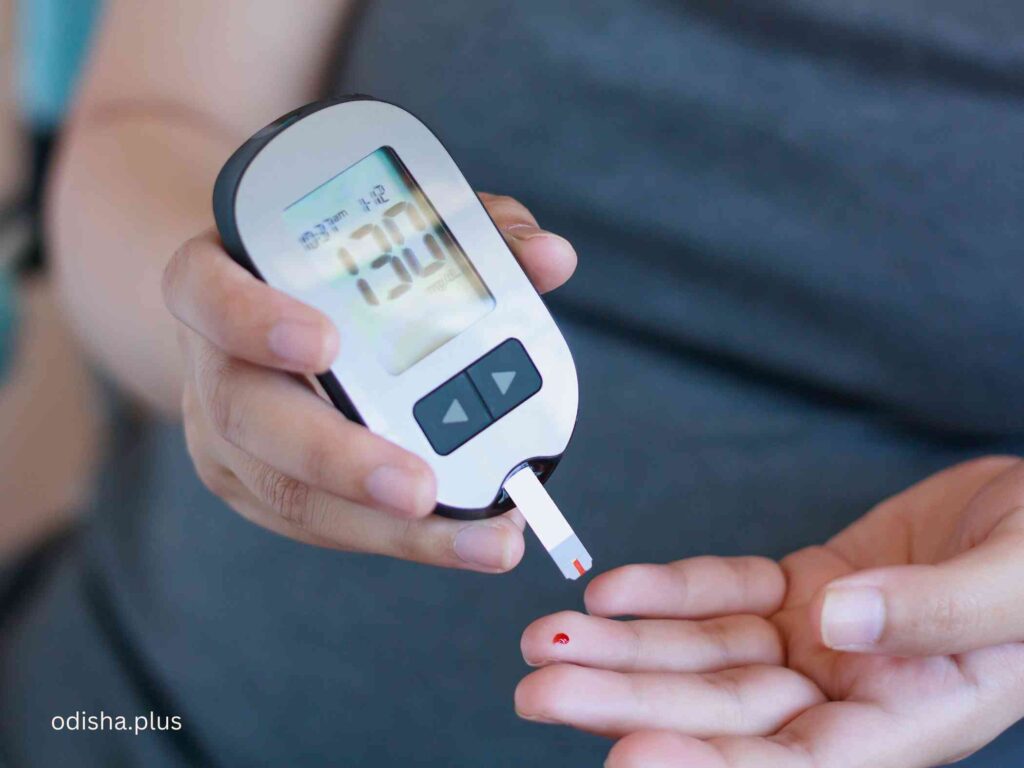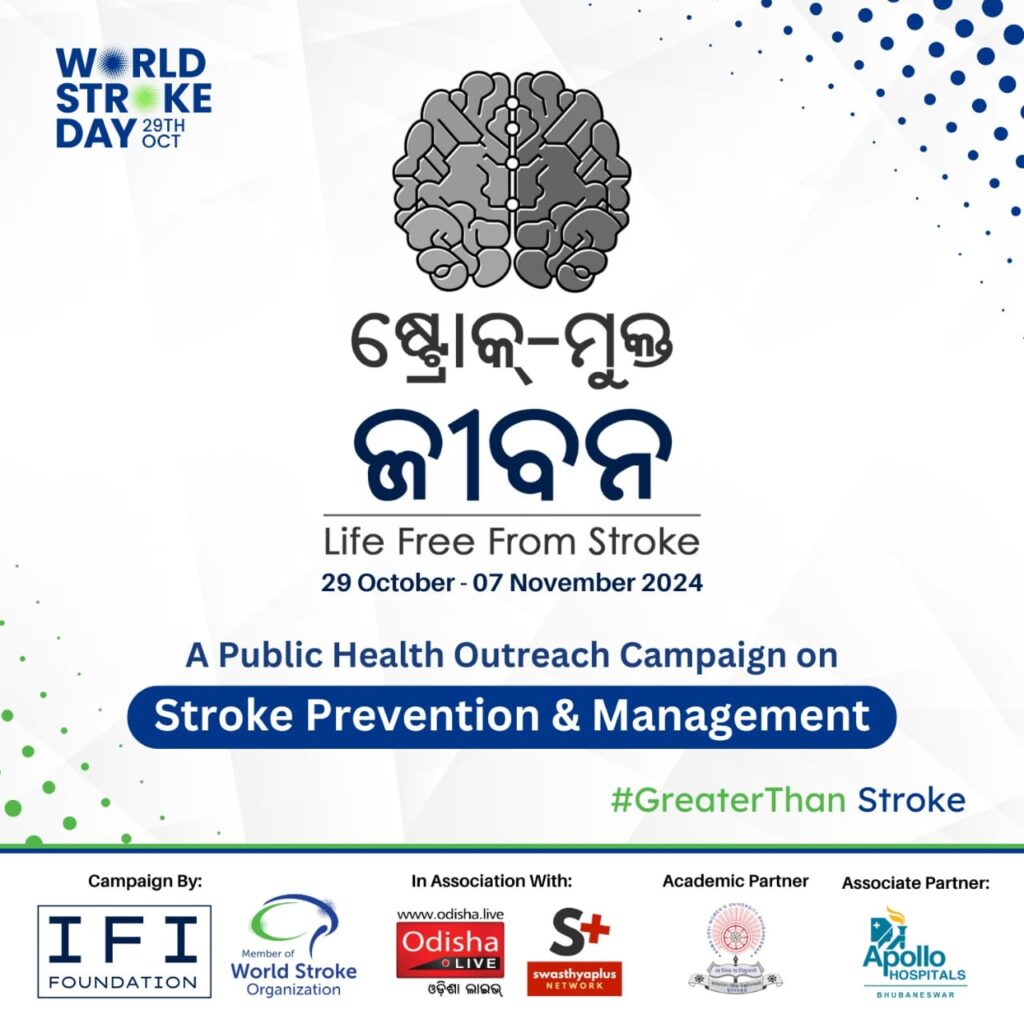1 in 5 people who have a stroke are diabetic and people with diabetes have poorer outcomes from stroke compared with the rest of the population
OdishaPlus Bureau

Stroke is a leading cause of death and disability worldwide, but most strokes can be prevented by addressing a small number of key risk factors.
Stroke and diabetes share many risk factors, most of which can be addressed with lifestyle changes and/or medication. This page provides information about the links between diabetes and stroke and about the steps to take to reduce your risk.
What is diabetes?
When you have diabetes your pancreas either stops producing insulin, or the insulin it produces doesn’t work properly. Your body uses insulin to convert the sugar (glucose) in your blood to energy. There are two types of diabetes – Type 1 and Type 2. Type 1 diabetes develops when your body stops producing insulin and glucose builds up in your bloodstream. Type 1 diabetes usually begins in childhood or adolescence.

Type 2 diabetes develops when your body doesn’t produce enough insulin or your body doesn’t react to it in the right way. Type 2 diabetes is much more common than Type 1 and tends to develop in adulthood.
Another kind of diabetes called gestational diabetes can affect pregnant women. It usually goes away after childbirth but can increase a woman’s risk of developing Type 2 diabetes.
Why does diabetes increase stroke risk?
Diabetes contributes to hardening of the arteries (atherosclerosis), which increases the risk of blood clot or a ruptured blood vessel. People with diabetes are also likely to experience a number of additional stroke risk factors including obesity, poor diet, inactivity, high cholesterol.
How do I know if I have diabetes?
Many people with Type 2 diabetes won’t know they are diabetic as the condition usually gets worse over time. Diabetes is often identified through blood or urine tests. You should ask your health provider for a test if you have any of the risk factors for diabetes, stroke or cardiovascular disease, or if you have any of the symptoms of diabetes.
Symptoms of Type 1 and Type 2 diabetes?
- Frequent urination, particularly at night
- Excessive thirst
- Fatigue
- Unintended weight loss
- Genital itching and repeated yeast infections
- Cuts or wounds taking longer to heal
- Blurred vision
You’re most at risk of developing type 2 diabetes if you:
- Are over 40 (or 25 for South Asian people)
- Have a close relative with diabetes (such as a parent, brother or sister)
- Are overweight or obese
- Are of South Asian, Chinese, African Caribbean or black African origin
- Are pregnant, or have previously been diagnosed with gestational diabetes
(Courtesy: World Stroke Organization)
#WorldStrokeDay2024 #GreaterThanStroke #BrainStroke



























